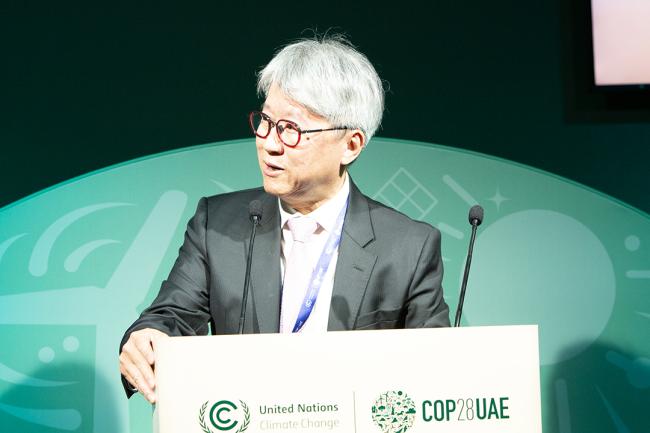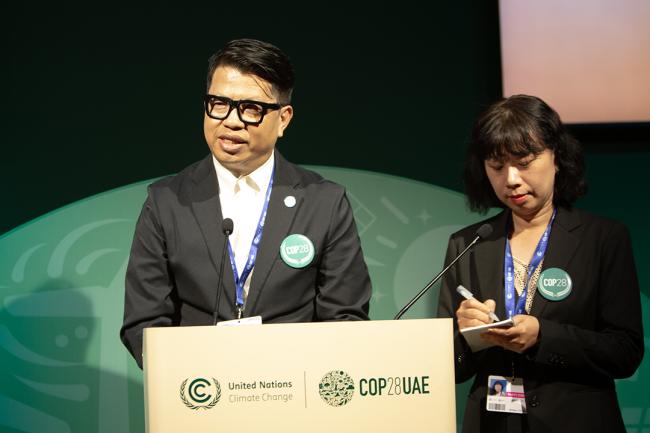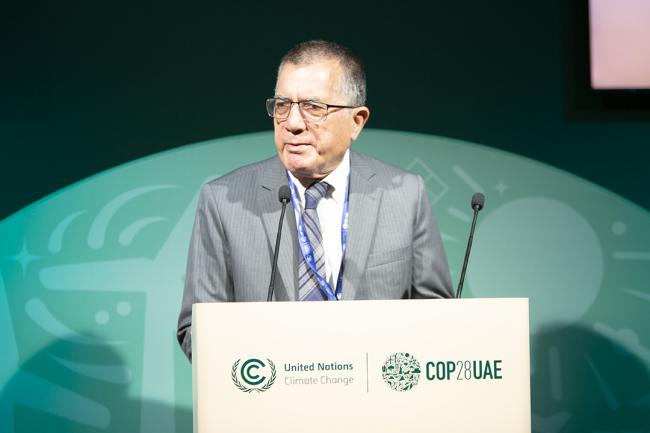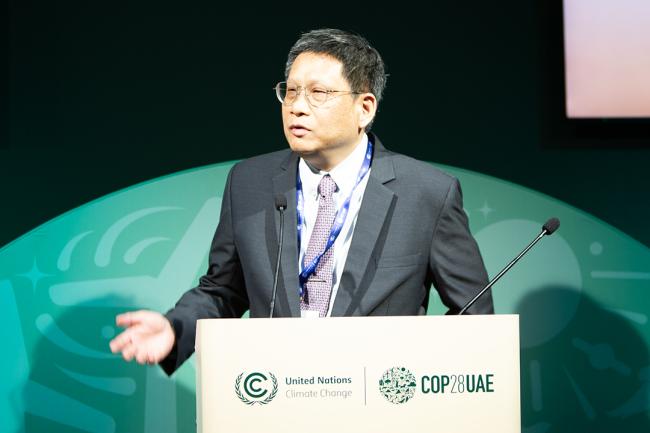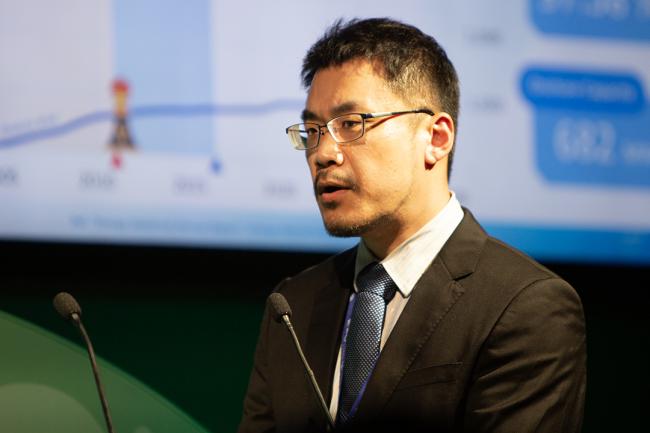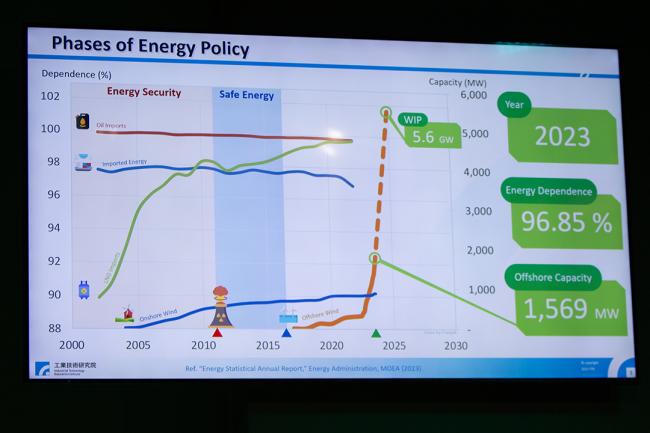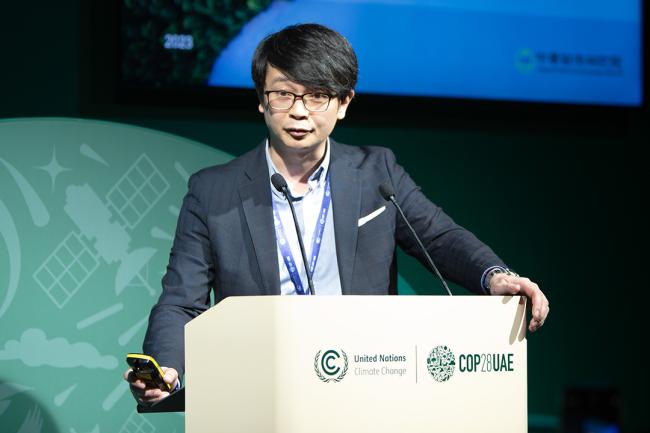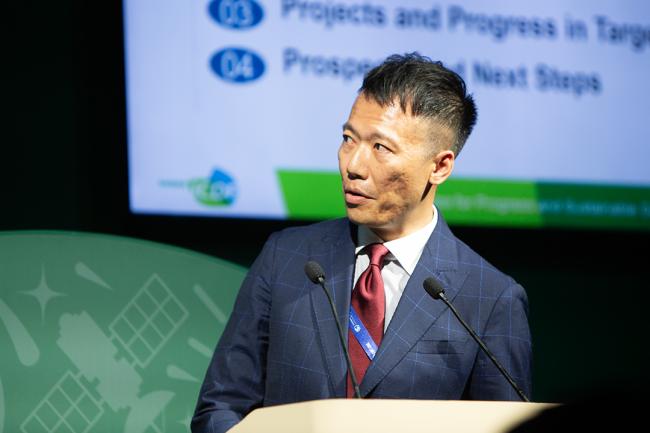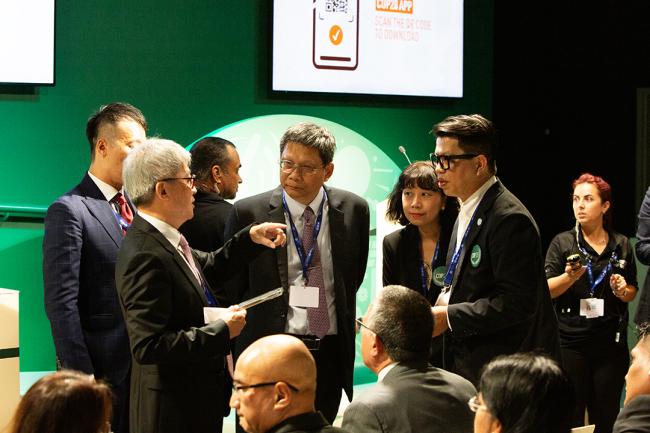About
As sea levels rise and weather-related disasters fuelled by climate change beset coastal regions, international cooperation is a crucial component of efforts to deploy clean, renewable energy technologies. At this event, Marshall Islands officials and technology experts shared their experiences making these partnerships and technologies work.
If the world is to achieve net-zero emissions by 2050, climate technologies must be rapidly brought online, which poses complex, multi-dimensional challenges, especially for small island developing States facing rapid sea level rise and weather-related catastrophes. This event, organized by the Marshall Islands and Industrial Technology Research Institute (ITRI), explored case studies involving these technologies and highlighted best practices for establishing cooperative, international approaches with the capacity to bring about energy transformations in developing countries.
Following welcoming remarks by Chien-Te Fan, National Tsinghua University, and John M. Silk, Minister of Natural Resources and Commerce, Marshall Islands, the event opened with the screening of a documentary film: Melting Greenland, Saving the Marshall Islands. The film showed the devastating connection between melting ice and rising waters. Featuring residents of both islands, the film showed how warming conditions offer benefits to agriculture and other activities in Greenland but presage a “bleak future” for the Marshall Islands, where waves threaten to engulf homes, roads, and airports.
Steven Ko, CEO, O’right, which launched the Melting Greenland project, stressed the astonishing rate of ice melt in Greenland, which loses 10,000 tons of ice every second. The estimated 7.4 meters of sea level rise that would be caused by the melting of Greenland’s ice threatens to submerge the Marshall Islands, where elevations average just two meters above current sea levels. In the film, a young boy living in the Marshall Islands climbs high into a coconut tree to show this projected rise in sea level, a moment Ko said left documentary makers in tears. “Only international cooperation can save the Earth from climate change,” Ko emphasized.
Following the film, Silk shared his own experience of when he and his grandson watched waves lap up closer to his home. The encroaching water prompted his grandson to ask, “Don’t you think we ought to move?” Silk stressed how Marshall Islanders’ lives and culture are inextricably linked to their land: “Without the land you are nothing […] when you lose your island, you will be drifting on the Ocean the rest of your life.”
Silk described the pain of potentially facing the decision of which islands to save and which islands to surrender to the sea. “Then what is going to happen to people who migrate to another of the Marshall Islands but don’t really belong […] they will always live like nomads,” he added.
Following Silk’s remarks, Ming-Shan Jeng, ITRI, gave an overview of ITRI’s new campus, the Shalun Green Energy Technology Demonstration Site, which is attracting international companies to work on next-generation energy crucial for reducing global carbon emissions. The video showcased programmes to develop, among others, solar power, energy management systems, and green hydrogen. The video also underscored international participation from companies, research institutes, and governments in Australia and Japan.
Kicking off a panel following the video, Ssu-Yuan Hu, ITRI, detailed ITRI’s work to develop sustainable offshore wind facilities in Taiwan. He emphasized the need to work closely with the energy industry and to make the technology profitable so that more people are eager to invest in the market, noting works with government, industry, and researchers to provide integrated information and scale up demonstration projects. ITRI also has developed a “single-serve window” to smooth the administrative aspects of developing wind power, such as gaining the necessary permissions and consent. Hu underscored that ITRI has deep experience in such collaborative efforts and is “ready to provide expertise” to more sustainable energy projects.
Je-Liang Liou, Chung-Hua Institution for Economic Research, showcased a project to help households in the Marshall Islands install solar power systems, thereby reducing their reliance on fossil fuels. The programme, which involves Taiwan’s International Cooperation and Development Fund (ICDF), the Marshall Islands Ministry of Finance, and the Marshalls Energy Company, will eventually achieve an estimated reduction of 992 tons of carbon dioxide equivalent per year. He underscored that the project offers an example of how to design collaborative approaches that generate economic value and new jobs.
Closing the panel, Ming-Hong Yen, TaiwanICDF, highlighted sustainable development partnerships around the globe, including projects in the Marshall Islands, showcasing the potential of circular agriculture, low-waste farms, and plastic waste recycling. He emphasized that technology needs to be adapted and transformed for use around the globe, and that local context is crucial to the success of such projects.
Organizer: Government of the Marshall Islands and the Industrial Technology Research Institute
Contact: Wei-chen Tsai | weichen.tsai@itri.org.tw
For more information: https://www.itri.org.tw/english/


